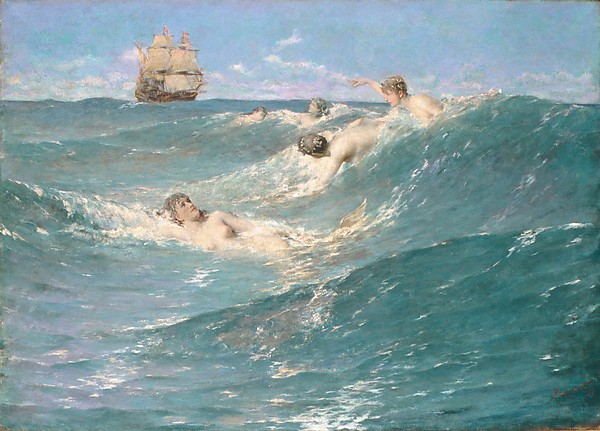
In Varna we stayed in the apartment building across the street from the house of the sea captain. There lived his juicy wife, beautiful daughter, gorgeous son-in-law, and two grandchildren, a girl and Mario. The heads of the black Labrador and the big orange cat were framed by the heart-shaped iron door ornament, and a gold plaque below them read: “Captain Tomov’s family. An exemplary home.” Every year it seemed the house grew one story higher. It looked like a schooner. The wind billowed out the colorful sheets and beach towels that hung on wooden clothespins, threatening to sail the entire house away.
In the summer all the city kids were sent to the Black Sea coast to be taken care of by their grandparents and to accumulate vitamin D. At night I used to sit on the balcony of the small room where my grandma and grandpa and sister and brother slept. I sat in between my grandma’s pots of tomato plants tied to high sticks. I imagined I was on a raft, lost in the middle of the Black Sea sailing towards Mario’s ship to be rescued and married. I composed love songs with the melody from the cartoon Oum the White Dolphin dedicated to my future husband. I wrote them in the dark, on glossy toilet paper sheets. I loved the new paper; it was glossy on one side which was meant to keep your hands dry. It also came in neat square piles, which looked like books and that’s how I treated them. In the morning I could not read what I’d written, tangled letters on top of each other, like my feelings, plentiful and chaotic.
Summer after summer, practically every day, I wore my white and blue striped sailor’s T-shirt and the sailor’s cap with the two long ribbons waving behind me. The shirt was full of holes, and the torn ribbons were tied together many times. My grandma would say, “You look shipwrecked!” instead of “Good morning.” I sat on the stoop across from the sea captain’s ship waiting to be noticed, invited in for a cup of cocoa and a cookie or a game of backgammon. With a hard stone I scratched Mario’s name on the sidewalk. I never had chalk, and the stone scratches were barely visible. Captain Tomov, in a white uniform, a hat and a pipe, stood on the upper balcony of his vessel. He was looking at something at least two blocks away.
They were a different class of people, like out of the movies. You almost didn’t know if they really existed. If electricity suddenly stopped, they would disintegrate. Or maybe at the end of the day, they just dressed in their regular dark blue clothes and went to their respective small, ugly apartments around town.
They didn’t mix with the commoners, you couldn’t see behind the high walls of their yard. But you could hear the crisp watermelons being cut, the backgammon dice thrown, the clinking of bowls of ice cream being served, the Greek music always on, and the easy laugh of Mario, who should have been mine but wasn’t, higher and louder than everything else. They didn’t need another sailor in the kitchen, or a bride for the grandson. Their ship was fully booked, the summer was almost over. Mario and I were sent back to our respective cities to start high school in a week.
And cut.
Sofi Stambo recently won the first prize in fiction in SLS Disquiet literary contest. She holds a Master’s degree in Comparative Literature from Sofia University St. Kliment Ohridski, Bulgaria and was a graduate student in literature at the City College of New York. Her work has appeared or is forthcoming in Promethean, Ep;phany, Plamuk, Kenyon Review Online, Broadkill Review, New Letters, Fourteen Hills, New England Review, Stand and The MacGuffin and Guernica. She lives in New York City.